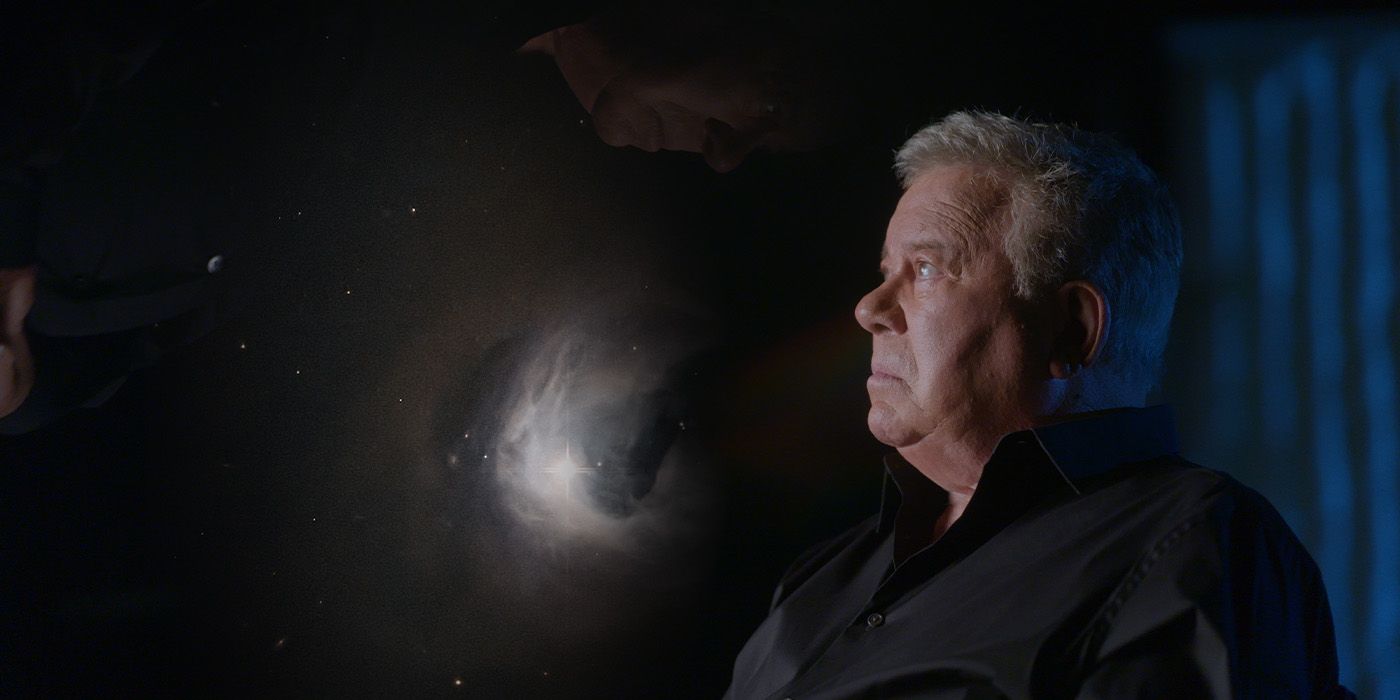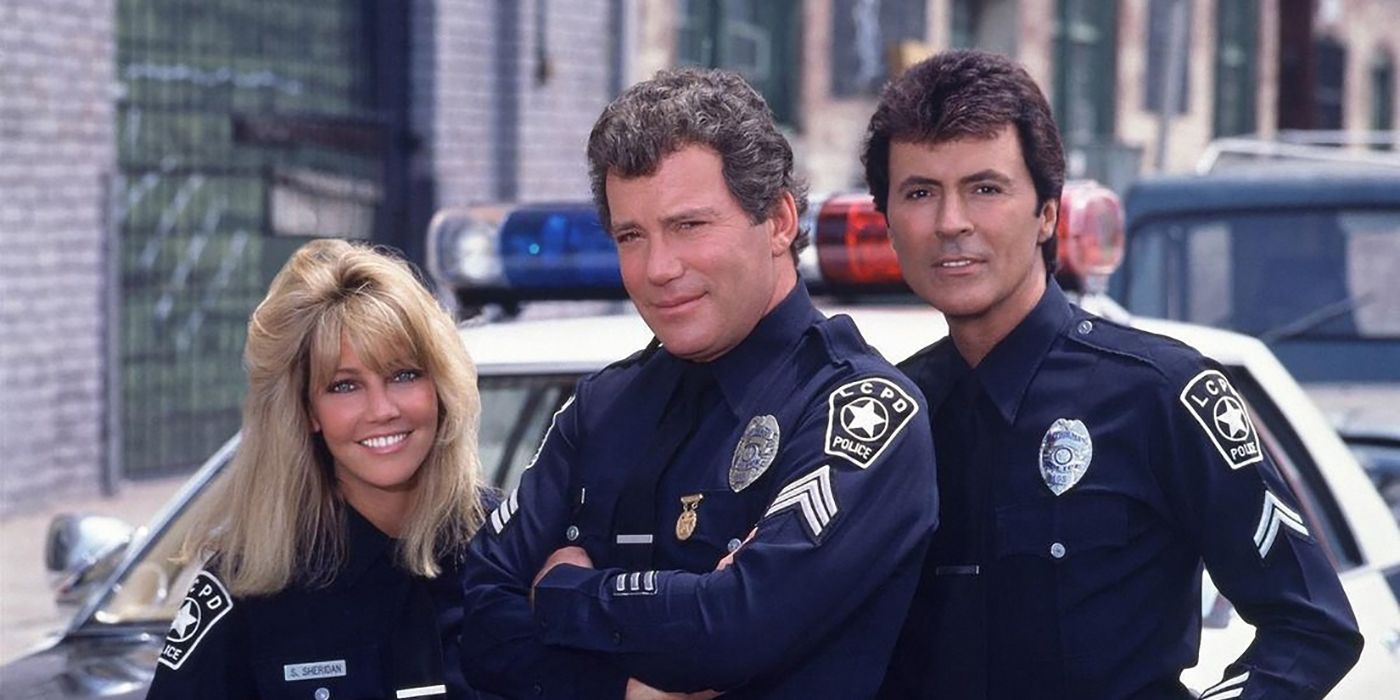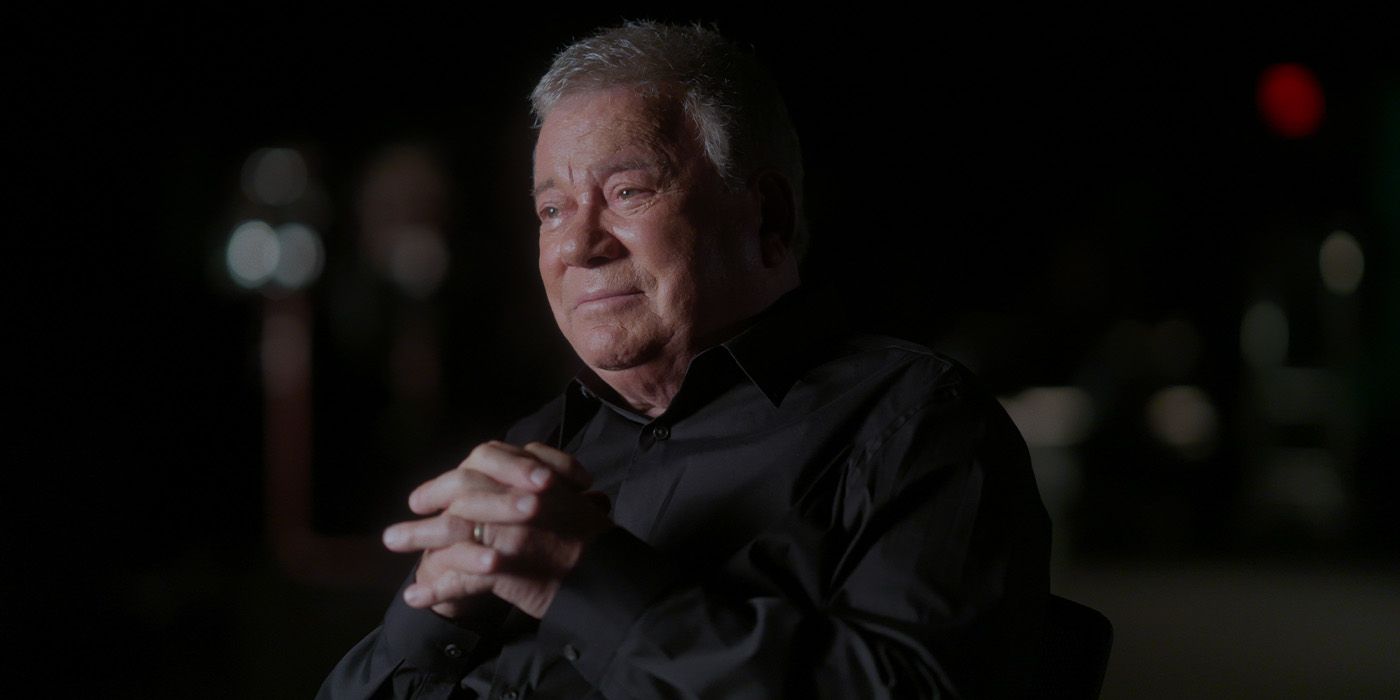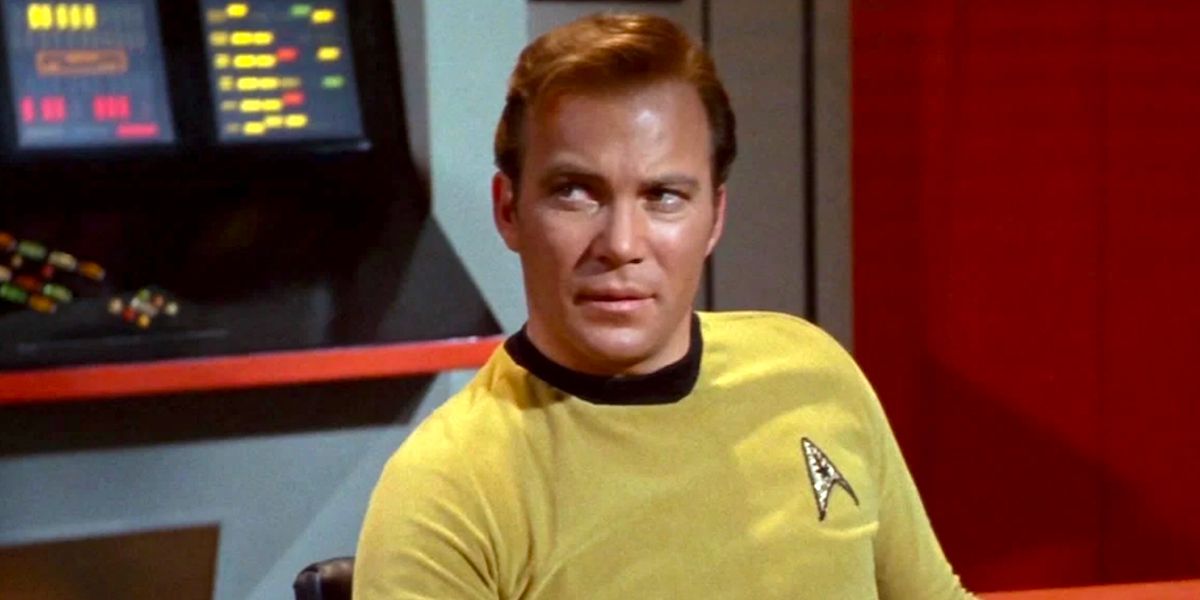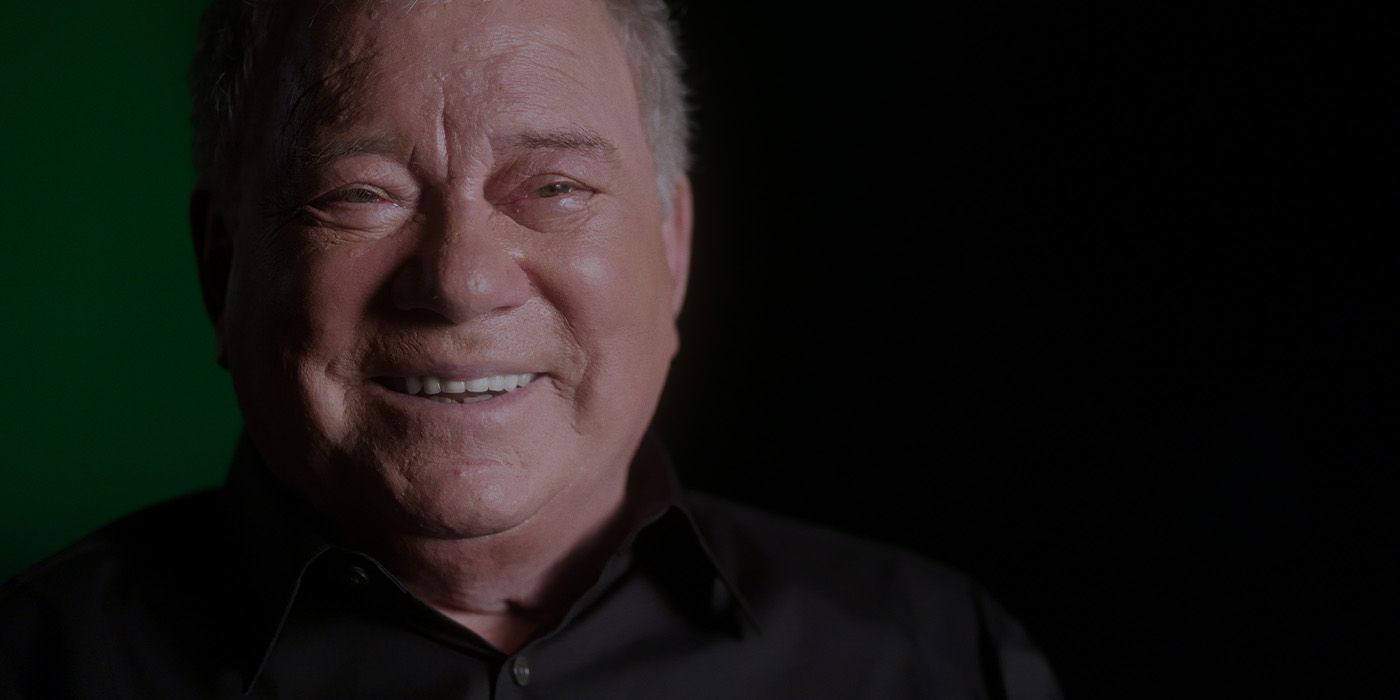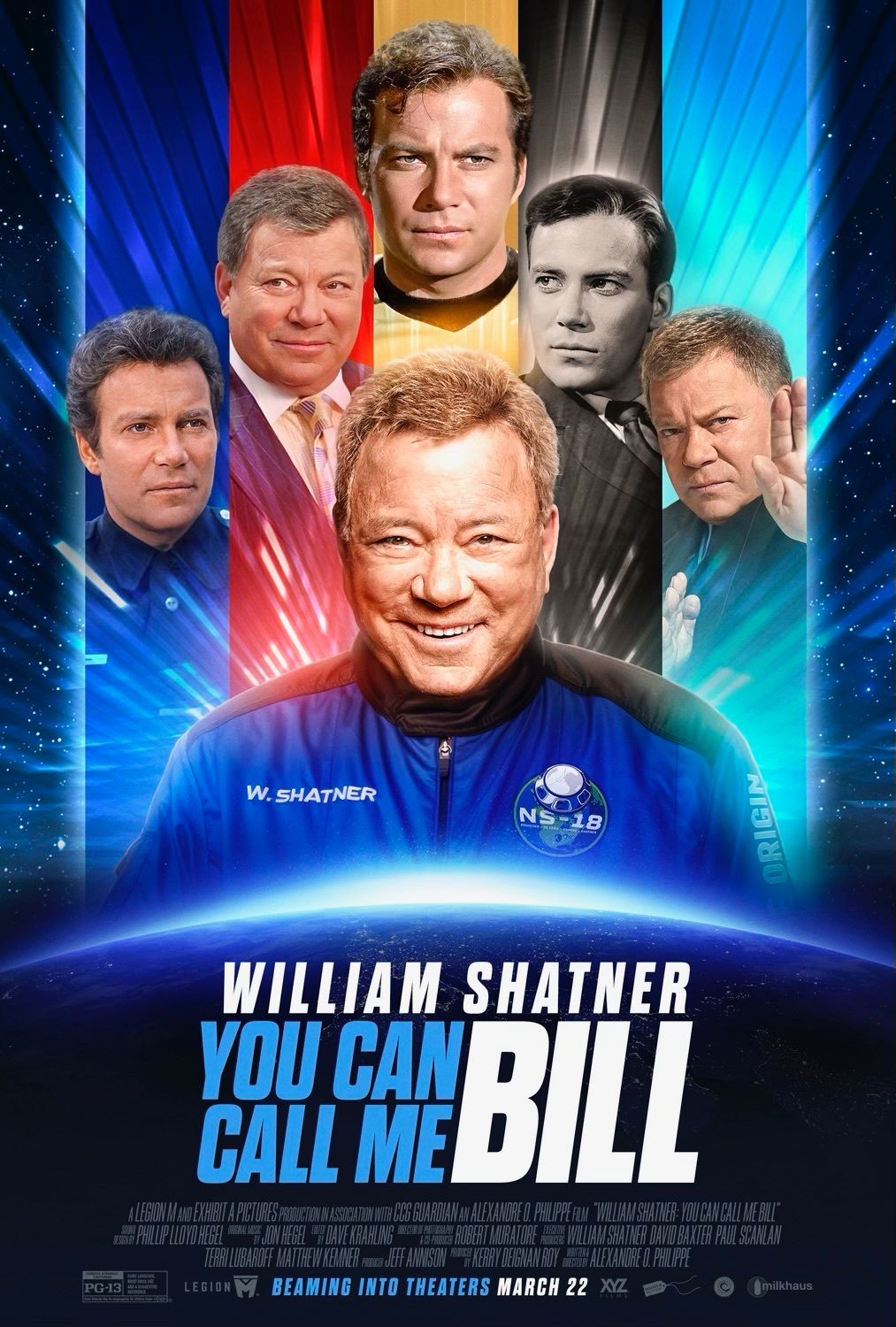The Big Picture
- Collider's Steve Weintraub speaks with Hollywood icon William Shatner about his documentary William Shatner: You Can Call Me Bill.
- Shatner reflects on his expansive career, from Star Trek: The Original Series to countless new projects, his musings on mortality, the importance of environmental preservation, and tons more.
- William Shatner: You Can Call Me Bill is now available to rent or purchase on VOD.
On his 93rd birthday, William Shatner's contemplative documentary, You Can Call Me Bill, launched in theaters. The fan-financed doc explores the decades-long career of this science fiction pathfinder, in which the actor reflects on his life, Earth, and the meaning of our existence. This look backward and forward examines the man behind the myth, and his legacy across the globe, and it's going to be available at home soon. In honor of its VOD release, Collider's Steve Weintraub spoke with Shatner about everything from his formative time on Star Trek: The Original Series to his latest (and numerous) projects.
It's clear from this interview that Shatner's love and curiosity for life — that which You Can Call Me Bill highlights so poignantly — is simply a way of being for him. Every day he can find wonderment; like, for example, how he points out that we have "the Library of Congress and the London Library...all in your hand," when holding up his cell phone to the camera. If only we can remember to "be aware of [our lives] and its existence." Despite his involvement with a number of projects, like two new studio albums, his Netflix series The UnXplained, and plenty more to keep him busy, Shatner doesn't seem to miss an opportunity to appreciate his self-proclaimed "charmed life," which he seems to have dedicated to living to the fullest, appreciating his fans, going on adventures, and relaxing at home when his schedule allows.
Check out the full interview in the video above, or in the transcript below for more on what's to come from William Shatner, advice from the Captain Kirk actor, the importance of caring for our planet, the miracle of Star Trek, and even his thoughts on the adventure of death. And be sure to check out You Can Call Me Bill, which is now available to rent or purchase on VOD.
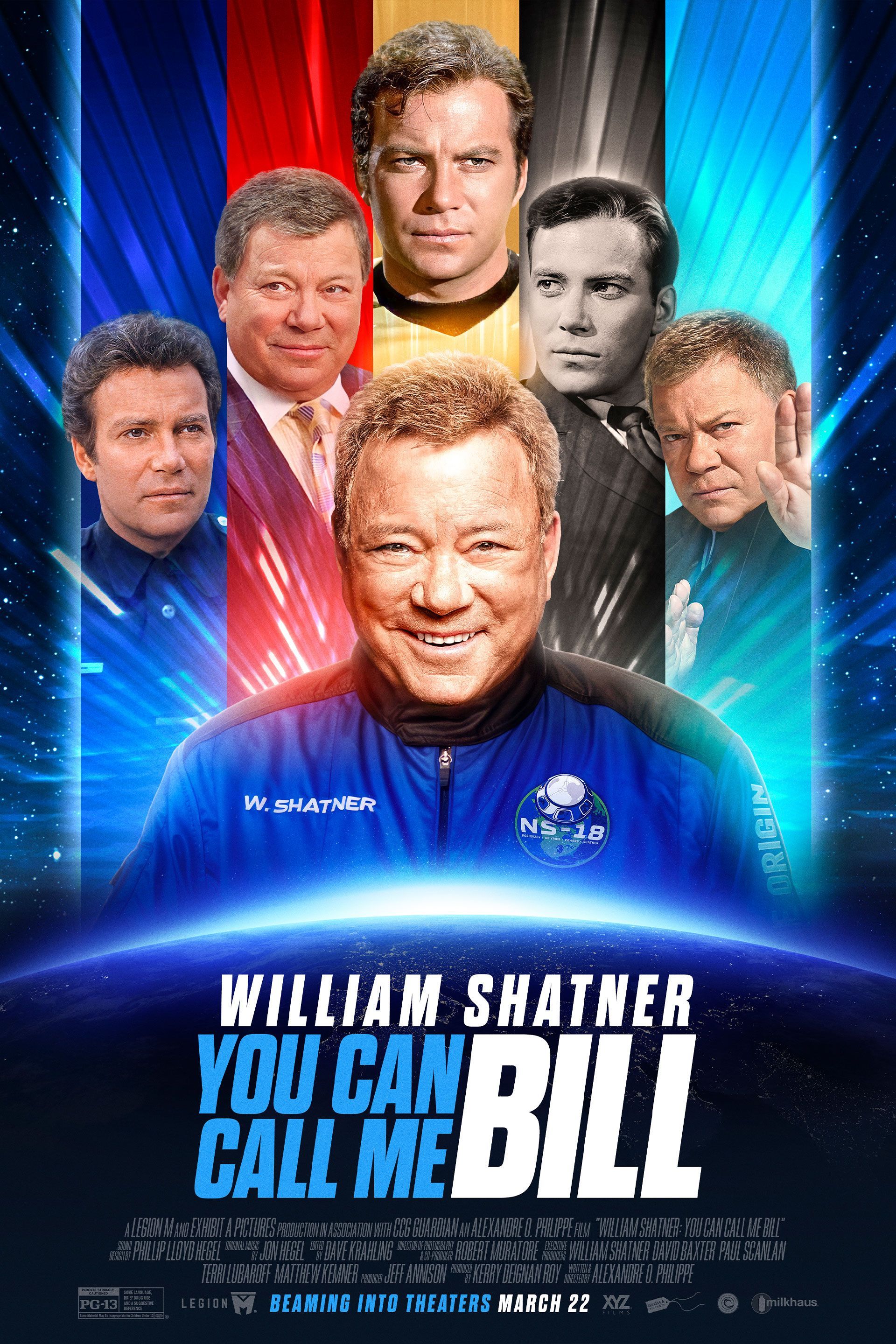
You Can Call Me Bill
- Release Date
- March 22, 2024
- Director
- Alexandre O. Philippe
- Cast
- William Shatner
- Runtime
- 96 Minutes
- Main Genre
- Documentary
- Writers
- Alexandre O. Philippe
- Studio(s)
- Legion M , Falling Forward Films , FilmFrog
- Distributor(s)
- Vortex Media
William Shatner Is Looking to the Future in All His Endeavors
COLLIDER: Just like tens of millions, if not hundreds of millions of people on this planet, your work has inspired me and possibly led to me creating Collider due to my interest in sci-fi and everything else, so I say thank you.
WILLIAM SHATNER: You're welcome.
I have a million questions for you before I get into the actual film. I know you are busier than anyone else I know. I know that you are just always busy, so how many different things are you actually working on right now?
SHATNER: I've got a very popular show called The UnXplained. It's on Netflix and on Discovery. This week, two albums are coming out. There's a children's album which is sweet and available to kids of six, seven, to eleven and twelve, written about the interconnection of animals, mushrooms and trees. They speak to each other and sing to each other. I believe it's a delightful album. There’s also an album of my performance of songs that Robert Sharenow, Dan Miller and I wrote for the Kennedy Center. I did a performance at the Kennedy Center, which we filmed and recorded. That film and that recording is coming out now. There's this documentary that's releasing now. I've designed two watches. One is coming out now, the other watch will be about six months. I did a performance on Monday at the University of Indiana, 15 minutes before the eclipse. I did a performance of stuff I wrote, and I utilized the university band.
Then there's all kinds of businesses that I'm involved in — futuristic business. One business has invented the tricorder, so they can read one disease at a time, by reading your saliva. Then, there are other businesses. One, for example, — my life seems to be really charmed — is my image projected, a projection like in Star Trek, except obviously it's not my body. But it's such a complete 3D image, it seems real. And the way it's set up, I can see the audience, the audience can see me, and it's like I'm there. So, I joined that company. A week later, I got a call from Australia saying, would I appear in front of 4,000 ad campaign people? I said, “I can't fly to Australia, but I can project my image.” And she said, “That's better than you being there.” And so it goes. There are many more futuristic ideas that I'm backing because I like the idea of the fact that they may get better, they may have a future. And if not, it's a really delightful idea that I'm glad to be a part of.
Is the 'T.J. Hooker' Movie Happening With Its Original Star?
One other question before getting into the film. I heard rumblings — this might not be true — that there's some stuff going on behind the scenes about a T.J. Hooker movie. Is there any truth to that?
SHATNER: I have heard the same rumblings, but I think it's the writer's stomach. I think that's it. I don't know. Nobody's ever come to me to play some version of whatever they would think of.
What I think is great about the documentary is how it weaves so many of your performances through your talking. It's like a time capsule of your life, and I think it's really well done the way it uses all the different performances. What are you actually most excited for fans to see in the documentary?
SHATNER: You're looking at an actor who's done a lot of publicity for a lot of things over the years publicizing this film that's being released. But the film is a documentary about me, so if I say to you, “Isn't it wonderful?” I'm talking about me. “Aren't I wonderful? Aren’t I wonderful? That’s moved you? It’s different. I’m wonderful, aren’t I?” I can't say that. So I thought — whether it’s true or not — that if I didn't see it, I could talk about it more with some objectivity. So, we can talk about it, and I dimly recollect everything, not everything but the stuff we talked about, but I can't say what's good and what's bad because I haven't seen it. But from what I'm hearing, and all the great reviews we're getting, it's being well-received.
Oh, yeah. We gave it a positive review on the site, and we can be difficult sometimes.
SHATNER: That’s good, so some venture that gets a positive review really has earned it.
Yeah, we don't give them out unless it's earned.
Existentialism With William Shatner
One of the things that you get into in the film is you talk about your mortality. As I've gotten older myself — everyone thinks about their mortality — but for me, I always think about what will I miss when I'm gone?
SHATNER: Me too.
What will I miss out on? What are the answers to the big questions that will be discovered in 100 years that I won’t be here to experience?
SHATNER: Exactly.
You really do get into your mortality. Has that been like something that you've thought about for a long time?
SHATNER: It gets more and more strident the older you get. Every birthday, this voice gets louder: “You're gonna die!” But there’s a prior question, and that is, when do you know you're dying? Does a cough mean it's the end of your life? A headache? Some pain or ache that ordinarily you’d laugh off, or go to the hospital and say, “I got this ache?” How many people do we know who went to bed and didn't wake up? Or people who walked into a room and you heard a crash and they just died? And are they thinking, “Oh, jeez, I lost my balance,” or, “I'm dying?” I mean, how do you ask yourself the question, “Am I dying?” Because it may be just a nerve ending? So, that question has occupied me. If you get ill, you think, “I wonder that's gonna kill me?”
I know people that have gone to the hospital and they never came out. I'm sure you're in the same boat.
SHATNER: Exactly. Well, I wouldn't go in a boat, I'd go in a trailer.
[Laughs] Sure.
William Shatner Warns, "The Jeopardy This Earth Is In Is Very Real"
One of the things the film also gets into, and you talked about it when you went into space, is the fact that our planet is so precious and so finite. It feels like so many people on this planet just treat the earth as a garbage disposal, and I am desperate to get more people to give a shit. What can we do?
SHATNER: Yes. Give a shit, but do it in the toilet and not in the park.
[Laughs] Yes.
SHATNER: That's absolutely true. I had dinner with friends last night who just came back from Japan, and it reminded me of what's-his-name who was lauding Russia and how clean the subways are, and all the food, and the streets are so clean…Tucker Carlson. These people were saying, “We love our country, but coming from Japan where it's so clean and neat, and coming to the airports and the bus station, we're so ashamed of this garbage dump. You go along the freeway and you’ve got all kinds of terrible things lying on the side of the road.” It just requires our citizenry to be aware that the jeopardy that this earth is in is very real. All these things that are going extinct; even the things we know about that are going extinct, but when you find something that you didn't know existed went extinct, that's really sad. It took 3.8 billion years for that thing to evolve and it's gone, and nobody knew it was here or left. So, yes, it's a huge message that I keep talking about.
Have you actually been to Tokyo? I have, and I was stunned by exactly what your friends said. You could be in the oldest mall or the oldest building and it's cleaner than any bathroom in America.
SHATNER: We shot film down in the underground, because they don't speak English there and you get lost very easily. It's so clean. There's no garbage anywhere.
I thought it was amazing. It's like being on a different planet.
SHATNER: I don't know why we don't assign a lot of people, I know they have some, looking over the streets just picking up garbage and filling the potholes. Have you seen how bad the roads are?
Yes. My car also says that it has seen the road and how bad it is.
SHATNER: Exactly.
William Shatner Implores Us to Stay Endlessly Curious
Just ask yourself a question: “What am I doing?"
One of the things that is also fascinating about you is that you've maintained this sense of curiosity about everything for what feels like your entire life, and I'll be honest, I have not been able to do that. What has been your secret to maintaining that attitude?
SHATNER: Well, I don't think it's a secret. You get used to everything. So, you pick up this thing here, and you make a call. The sense of extraordinary wonderment has long since left you that, in your hand, you have the Library of Congress and the London Library, and you're able to make a call to the ends of the earth — all in your hand. I mean, if you were to tell somebody prior to this invention, they'd say, “You're crazy. That's science fiction.” And prior to science fiction, they'd say, “I think we should shoot you. You're dangerous.” So, the wonderment of everyday life, of everything… I mean, I don't know how that phone works. Do you know how the phone works?
I do not know, except that I'm in love with it every day. I mean, it's changed the planet's life.
SHATNER: Absolutely. And there's no telling how many people are getting their education, learning to read, reading books. It might unlock all this potential that human beings have that [we] waste on war. So, if you can maintain this, “Where did this bread come from? My lord, it tastes good.” If you could just be aware of your life and its existence. You could find fault that you're not in a forest, living the natural life, but the life you can live here, of enlightenment and of kindness and of the poverty being eradicated, there's so much that is so miraculous and so worthy of pondering. Just ask yourself a question: “What am I doing? What am I doing? Get in the car.” What are you doing?
You have done an awful lot of conventions in your life. I have to know, do you have a preference between the cruise ship, Vegas, out-of-the-country? Are there certain locations that you're like, “Yes. Let’s do that?”
SHATNER: My basement would be great. I hate to leave home. It brings to mind, it’s not a convention but it’s a giant trip — I'm going to the Antarctic, Christmas week, with 250 people on a ship. There's still tickets available, and they're fairly expensive. It's a 10-day trip. It’s a voyage of a lifetime, and it's kind of Star Trekie, and it has me and some other people who are identified in science fiction. It'll be enormously entertaining, but it leaves a couple of days before Christmas and goes to the Antarctic.
When you get offered something like that, is it an immediate yes? How much are you thinking about that before taking the trip? I mean, it's a big adventure.
SHATNER: I think that is a huge adventure to go to the Antarctic. They said, “Well, we'll pay you, and we'll give you cabins.” It was just so beautiful, the idea of spending 10 days with most of my family on that ship with those experiences — the polar bears and the penguins and the kayaks and the ice and the snow and the storms. So, that's gonna take place on Christmas Week.
I have done a cruise ship devoted to Star Trek with, I think, 2,000 people aboard the ship, and everybody interested in Star Trek. I never lose sight of the miracle of it. As much as it's sometimes, you know, “Hey, Captain Kirk…” and it's a little bit tedious, the miracle of Star Trek never leaves me.
It's what I said at the beginning, though. You and your fellow cast mates on the original show, and everyone who worked on it, influenced the entire planet, and it's not too often you can be a part of something like that. There are very few people on this planet that have done what you've done.
SHATNER: Well, it's, it's a phenomenon. Star Trek is a phenomenon with all its reiterations and people connected. It’s incredible.
Over the years, not so much anymore, but years ago there was a competition between whether or not you were a Star Trek fan or a Star Wars fan. There was always a little bit of a rivalry. Have you ever actually been asked to be on any Star Wars thing at all?
SHATNER: Not really. That would be taking it out of the reality of the show, and doing a gag, in the same way doing a cameo role is show-busy. It's not true to the nature of the show, so I've turned those down. But I don't look at any of the Star Treks, including, I've got some buddies on The Next Generation, and I haven't really seen any of their shows. I just don't watch Star Trek. And there's a number of shows I've never watched that I'm in.
In All the Galaxy, William Shatner Just Wants to Be Home
Or Hawaii.
Getting back to what I said earlier, which is, you've been fortunate to travel this world, is there a location on this planet that you've been to that really inspired you, or something that you really wanna tell people, “If you have the opportunity, you should go there?”
SHATNER: Well, the answer to where I want to go is my home. I've got a lovely home on a hill. I'm looking over the San Fernando Valley. I've got two dogs, they've got their places. We've got the house pretty much up to snuff, and it's a haven. Whenever I have to leave, it's onerous. But if you're suggesting what other place would I go, it would have to be where I didn't have to get dressed up. I could be like this and talk to people like I'm talking to you, and sort of do one-on-one, and have it very peaceful around me. It suggests Hawaii.
[Laughs] Hawaii is very nice, and not too far from California.
SHATNER: Right.
You have done so many different roles in your career. Obviously, many people have seen Star Trek, but if someone has actually never seen anything you've done before, what is the first thing you'd like them watching and why?
SHATNER: Well, I can't put a judgment on how good it was or how good I was in it, but when I'm asked a question about what I've done, I did a one-man show on Broadway, [Shatner's World: We Just Live in It]. The one-man show is literally that — no dancing girls, no music, no other entertaining aspects. It's you. Whether you're telling jokes or telling stories, it's you and the audience. I made that connection in New York, and I toured with quite a few places for some months afterwards. That's probably as tough an assignment and as well-worked out as it became. So that one-man show, there’s film on it. I haven't released it, actually, but there's a one-man show out there.
I’ve heard of this company called Legion M. Just something to think about.
SHATNER: [Laughs] Imagine somebody coming up and saying, “We're not gonna ask the public for financing, self-financing. We're gonna say to the public, ‘If you give us money, you're investing in the company. You'll invest in the movie you want to invest in, and in our company. As a result of which, if we make money, you'll make money. If we don't make money, none of us get paid.’” That's their premise, and I was struck by it. That was one of the reasons I decided to do this documentary.
And perhaps a way to release your one man show. Just a thought.
What Is StoryFile, and Why Should Future 'Star Trek' Fans Care?
A number of years ago, we actually spoke and you told me you had spent days recording answers to tons of questions so that one day, when you're not here anymore, people could actually talk with you, or something along those lines. How did that project turn out? Is it done? Have you seen a beta version of it?
SHATNER: It's done, and it's called StoryFile. I did five days in front of a camera, 3D and AI. They've put it into a housing, which you can press a button, ask a question and the machine answers whatever the question is. Since I fed that AI computer five days worth of answers to questions that I was being asked, it's likely that one of the questions you asked me has been asked and the machine will spout it out. If you ask a question that hasn't been asked, that machine will collate what has been answered in other questions, and, in all likelihood, provide an answer. So, it's question/answer.
Is it in person or is it something that they're still working on?
SHATNER: No, no. You can buy it.
You Can Call Me Bill is now on VOD. Check it out on Amazon.


